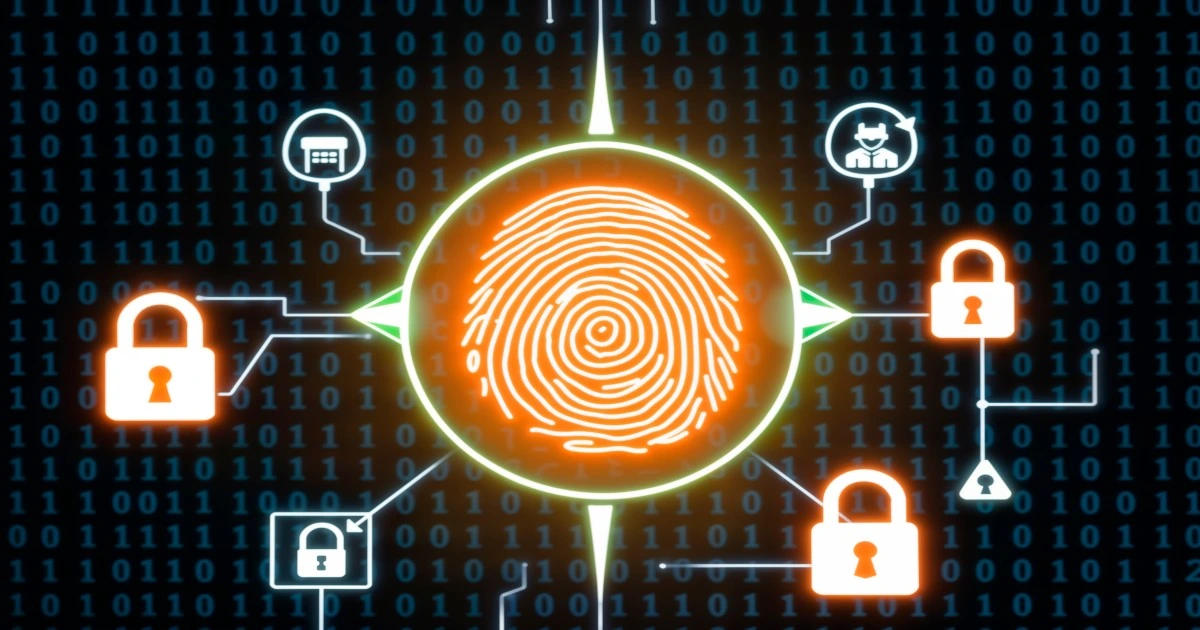Blockchain in identity verification is revolutionizing the way we establish trust in digital interactions. Consumers and businesses alike demand secure, seamless, and transparent identity verification processes to protect sensitive data and ensure reliable online interactions.
A McKinsey study reveals that over 50% of consumers prioritize trust in a company’s ability to protect their data before engaging in digital transactions. Alarmingly, 40% of respondents have ceased doing business with companies following data breaches or ethical violations, underscoring the critical role trust plays in digital ecosystems.
Also You can Read This: Building a Digital Trust Ecosystem with Blockchain
The global market for digital identity solutions is experiencing exponential growth. Valued at $42.12 billion in 2024, it is projected to reach $133.19 billion by 2030 at a CAGR of 21.2%. Within this space, blockchain-based identity verification solutions are gaining traction due to their ability to mitigate data breaches and fraud risks.
The increasing adoption of online services, government-backed initiatives for secure digital identities, and advancements in biometric authentication further fuel this demand. Verifiable credentials, powered by blockchain technology, are emerging as transformative solutions for digital identity verification. Let’s dive deeper into it.
What Are Verifiable Credentials?
Verifiable credentials (VCs) are digital versions of ID cards, certificates, or licenses that are protected using cryptography to ensure they are real and cannot be changed. They have three main parts: metadata (details about the credential), claims (information about the person, like name or qualifications), and proofs (secure codes that confirm the credential is valid). These credentials are highly secure and can be verified through decentralized systems without needing a middleman, making digital identity verification safer and more reliable.
Key Features of Verifiable Credentials
- Cryptographic Security: Uses blockchain in identity verification to protect data and prevent tampering.
- Interoperability: Supports decentralized identity by following W3C standards for seamless use across platforms.
- Privacy-Preserving Authentication: Enables selective disclosure of information, ensuring trust and privacy in blockchain systems.
- User Control: Allows individuals to store and manage credentials securely in digital identity wallets.
Examples of Use Cases
- Healthcare: Patients can store medical records as verifiable credentials (VCs) in digital identity wallets. This ensures privacy-preserving authentication and prevents unauthorized access.
- Finance: Blockchain in identity verification enhances Know Your Customer (KYC) processes. VCs enable secure and tamper-proof credential sharing, improving onboarding efficiency.
- Education: Universities issue VCs for degrees and certificates, making digital identity verification seamless for employers.
- Travel: Decentralized identity solutions allow travelers to store boarding passes and visas as VCs, reducing paperwork and enhancing security.
Read More : What are Verifiable Credentials and Why You Must Know About Them Today
Challenges in Traditional Identity Verification
Traditional identity verification methods rely heavily on centralized systems, which pose significant challenges in terms of security, scalability, and efficiency.
Issues with Centralized Systems
- Security Risks: Centralized databases are vulnerable to cyberattacks and data breaches, with hackers targeting sensitive identity information stored in one location. For example, Meta faced a €1.2 billion fine for GDPR violations due to improper data management.
- Inefficiency: Manual verification processes are slow and resource-intensive, leading to high abandonment rates during onboarding flows.
- Privacy Concerns: Centralized systems often require users to share excessive personal data, raising concerns about misuse and unauthorized surveillance.
- Lack of Trust: Users have limited control over their data, eroding trust in centralized authorities managing identity information.
Impact on User Experience
The inefficiencies in traditional systems result in poor user experiences due to lengthy verification times and geographical restrictions. For instance, in-person ID checks limit businesses’ ability to scale globally or onboard customers remotely.
Role of Blockchain in Identity Verification
Blockchain in identity verification provides a decentralized and immutable framework that addresses the shortcomings of traditional identity systems.
How Blockchain Enhances Identity Systems
- Decentralization: Blockchain distributes identity data across multiple nodes, eliminating single points of failure and enhancing security.
- Immutability: Once recorded, identity information cannot be changed or deleted, ensuring tamper-proof credentials.
- Transparency: All transactions are recorded on the blockchain ledger, allowing verifiers to independently confirm the authenticity of credentials.
Benefits of Blockchain-Based Verifiable Credentials
- Decentralized Identifiers (DIDs): Unique identifiers stored on the blockchain that allow users to prove their identity without revealing sensitive information.
- Zero-Knowledge Proofs: Cryptographic techniques enable users to verify claims (e.g., age or citizenship) without disclosing underlying data.
- Privacy-Preserving Authentication: Users retain control over their identity information and share only what’s necessary for verification purposes.
Advantages of Blockchain-Based Verifiable Credentials
Blockchain-based verifiable credentials (VCs) are revolutionizing identity verification by addressing long-standing issues in traditional systems. Here are the key advantages:
1. Enhanced Security and Tamper-Proof Records
Blockchain ensures that credentials are immutable and cryptographically secured. Once issued, they cannot be altered or forged, significantly reducing fraud risks. For example, the International Chamber of Commerce highlights that counterfeit goods cost the global economy $4.2 trillion annually, a problem VCs can help mitigate by ensuring authenticity.
2. Improved User Control Over Personal Data
With blockchain-based VCs, individuals have full ownership of their credentials, stored securely in digital identity wallets. Users can selectively share specific attributes without exposing unnecessary personal data, aligning with privacy regulations like GDPR. This privacy-preserving authentication builds trust among users.
3. Scalability for Global Use Cases
Blockchain’s decentralized nature allows credentials to be verified instantly across borders without relying on intermediaries. This scalability is particularly beneficial in global industries like education and healthcare, where seamless cross-border recognition of qualifications is critical.
Challenges and Limitations
While blockchain-based VCs offer numerous benefits, they also face challenges:
1. Scalability Issues with Blockchain Networks
As blockchain networks grow, maintaining speed and efficiency becomes challenging. Solutions like sharding and Layer 2 protocols are being explored but are not yet universally adopted.
2. Regulatory Hurdles and Adoption Barriers
The regulatory landscape for blockchain technology is fragmented and evolving. Businesses must navigate complex compliance requirements across jurisdictions, which can slow adoption.
3. Addressing Misconceptions About Blockchain Technology
Blockchain is often misunderstood as being synonymous with cryptocurrencies, leading to skepticism about its broader applications. Educating stakeholders and dispelling myths is critical for mainstream acceptance.
Future Trends in Blockchain for Identity Verification
The future of blockchain in identity verification is promising, driven by emerging trends:
1. Integration with AI for Predictive Analytics and Personalization
AI can enhance blockchain systems by enabling predictive analytics and personalized user experiences. For instance, AI could analyze credential usage patterns to improve fraud detection or optimize verification processes.
2. Growth of Decentralized Identity Ecosystems
Decentralized identity ecosystems are expanding, with increased adoption of self-sovereign identity (SSI) solutions and verifiable credentials by governments and enterprises alike.
3. Potential Role in Web3 Applications
Blockchain-based VCs will play a pivotal role in Web3, enabling secure interactions in decentralized applications (dApps) and metaverse platforms. For example, VCs can verify user identities or grant access to restricted virtual spaces.
Conclusion
Trust is the backbone of digital identity verification, and blockchain-based verifiable credentials are transforming how organizations verify identities securely and efficiently. By offering tamper-proof credentials, privacy-preserving authentication, and decentralized identity solutions, blockchain overcomes the flaws of traditional methods while ensuring global scalability.
Businesses, universities, and government institutions can benefit from digital identity wallets and credential issuance and verification powered by blockchain, ensuring security and compliance with global standards.
Ready to build a trust-driven identity verification system? Explore EveryCRED’s digital credential solutions and give users control over their data while enhancing security. Partner with EveryCRED today!

 28th March, 2025
28th March, 2025 



